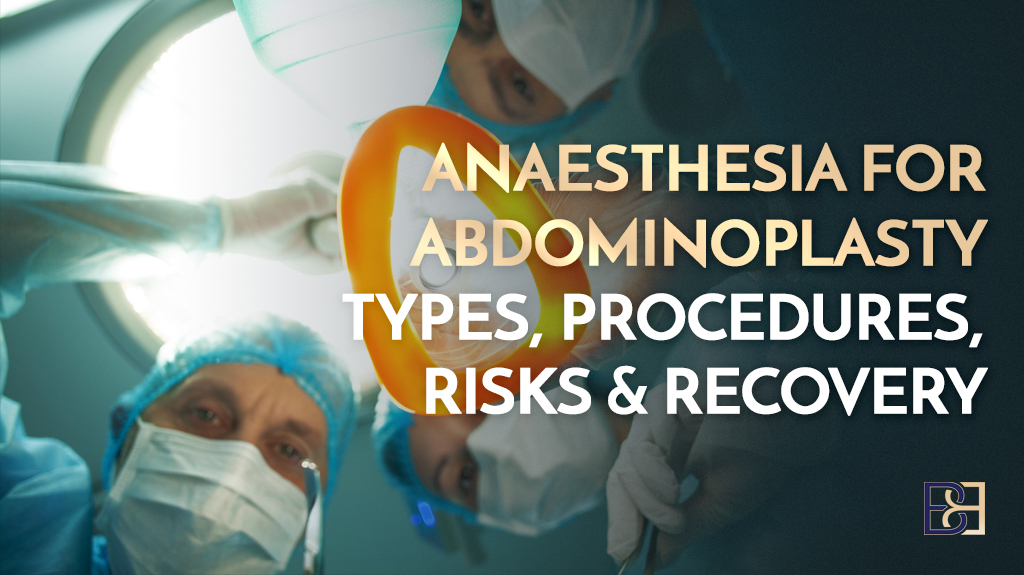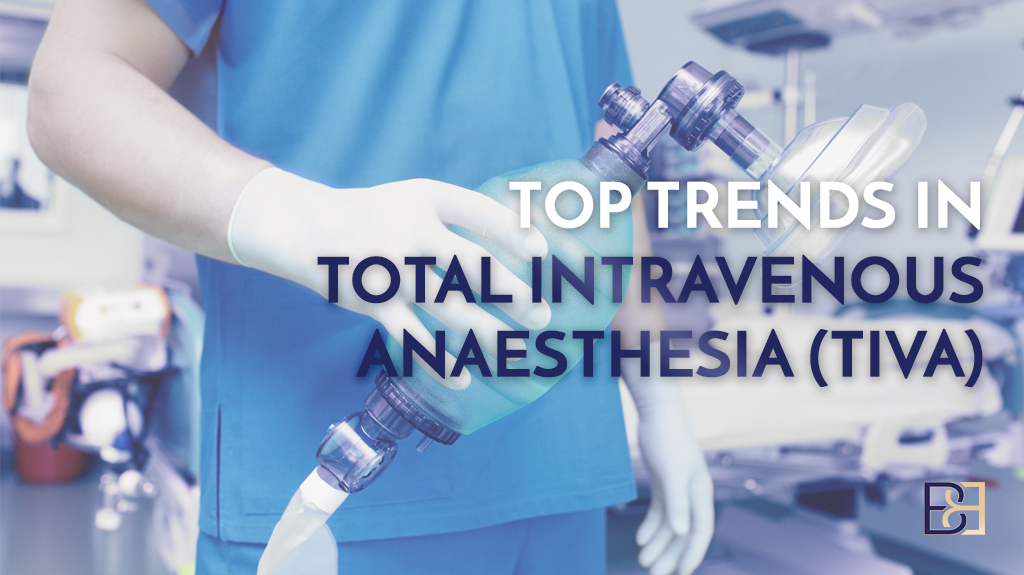Anesthesia is an important part of surgery. If you have never had general anesthesia before, you may be unsure about what to expect. Not to worry. We have put together a comprehensive guide to answer all of your anesthesia questions. Today’s blog post will walk you through the basics of anesthesia, what to expect, how to prepare, side effects, risks and safety, and much more so you can head into surgery day feeling prepared.
Book your appointment online now
What is anesthesia and how does it work?
Anesthesia is what makes you “fall asleep” during surgery. It is a temporary state of controlled loss of consciousness that is medically induced. This allows you to have invasive procedures like plastic surgery done ** without any memory or sensation of the event.
Are sedation and anesthesia the same thing?
No. Sedation is a light state of sleep, whereas general anesthesia is a very deep sleep. When you have cosmetic surgery, general anesthesia is the standard. If you only had sedation, you would be unaware of your surroundings for the most part, but might be able to respond to commands, open your eyes, et cetera. This can be beneficial during minimally invasive procedures or even MRIs for children.
For invasive cosmetic procedures like mummy makeovers, breast augmentation, or an arm lift, for example, you would want to be fully unconscious. General anesthesia will be provided for such procedures.
What happens when it is administered?
You will be given intravenous anesthesia prior to surgery so that you don’t remember a thing. You will be greeted by the anesthetist in the operating bay. Dr. Beldholm’s anesthetists, Dr. Michael Law or Dr Daniel Orr, will answer any last minute questions you might have about anesthesia. They will also review your post-op pain management plan with you.
When you are ** lying down on the operating table, an IV will be gently inserted into your arm. Most patients hardly feel a thing. It is not painful, instead feeling like a ** pin prick.
Over the next few minutes, you will gradually drift off into a ** and relaxed state. Your eyes will feel heavy and begin to close. Your thoughts will slow down. Some patients report feeling a warm sensation wash over them. Once you are completely sedated, your cosmetic surgery is ready to begin.
The three stages of general anesthesia
When you are put to sleep for surgery, you will drift off gradually in phases. There are three steps from consciousness until you reach the deep sleep stage that is desired for surgery.
The first is the analgesia stage. The patient is conscious, but the perception of pain is diminished. The second stage of anesthesia is the delirium stage. At this point, the patient is unconscious, but the body still responds reflexively. This phase is usually quite brief.
Stage three is known as surgical anesthesia. This is the phase we want to reach for a patient who will be getting cosmetic surgery. The muscles are totally relaxed and the patient is in a deep state of sleep. They will have no memory or feeling of the event. When you reach this state, surgery can be ** performed.
Dr. Beldholm’s anesthetist is highly trained and knows exactly how much anesthesia to administer for each patient to reach and maintain this stage. When surgery is complete, the medication dose will be lowered so that you ** awaken in the reverse order.
Do you stop breathing when you are under anesthesia?
You will have assistance breathing when general anesthesia is given. The anesthesia medications can relax certain muscles such as the diaphragm, which is essential to breathing. You will have help breathing from a ventilator so that you can breathe normally while you are under.
Intubation can be **. For this reason, you will be intubated only after you are fully asleep. The breathing tube will be removed immediately after surgery, before you have awakened. While the tube is inserted and removed as gently as possible, it is common to have mild soreness in the throat following intubation.
What does an anesthetist do?
Anesthetists are present during any surgery where you will be fully sedated with medication. Your ** depends on the anesthetist. They are there to help keep you **and **.
Training required to become an anesthetist
An anesthetist is a special kind of doctor who is highly trained in their field. It takes a long time to become an anesthetist. S/he must complete seven years of training in anesthesia, along with post-graduate schooling for pain management and intensive care.
What is their role in the operating room?
During surgery, the anesthetist administers a dose of anesthesia tailored to your age, weight, health, type of surgery, and any other special considerations that might apply to you. The anesthetist remains with your during the entire operation. They monitor your ** carefully so that your cosmetic surgeon can focus on performing the operation.
While you are in the operating room, the anesthetist keeps and eye on you at all times. S/he will monitor your blood pressure, heart rate, oxygen levels, and more with the help of specialized medical equipment. They make sure you are in good hands throughout surgery.
What else do anesthetists do?
Anesthetists do more than just administer anesthesia during surgery. They also plan your pain medications leading up to, during, and after surgery. Before surgery, the anesthetist will talk to you and meet with your surgical team to plan the course of anesthetic that is most appropriate for your surgery. A good pain relief strategy ensures that you are ** during and after surgery.
The anesthetist is responsible for you until the effects of anesthesia have worn off in the recovery room, until you are alert enough to be taken home if that is the plan after surgery.
Preparing for general anesthesia
There are some ** steps you can take leading up to surgery to keep yourself ** and prepared. The anesthetist will serve as your guide. S/he will tell you what you need to do to prepare. Following their instructions will help you manage pain, reduce side effects from anesthesia, and keep you ** during the procedure.
What should I do before surgery to prepare for anesthesia?
Before you come in for surgery, you will receive special instructions from Dr Bernard’s anesthetist, Dr. Michael Law or Dr Daniel Orr. The goal is to make sure you understand the steps you should take before surgery to reduce the chance of discomfort and complications associated with anesthesia.
A ** surgery requires your cooperation. It is very important to follow the instructions exactly as the anesthetist says. Rest assured he is experienced in making sure you have the lowest risk from anesthesia.
You will be asked to stop eating and drinking usually 12 hours before the procedure. The reason is so that the food or liquid doesn’t back up into your stomach when you are under. For any medications that you are asked to take in the morning, you can ask the anesthetist if they may be taken with a sip of water.
Should I stop smoking prior to my surgery with anesthesia?
Definitely! Smoking significantly increases your risk of serious cardiac and respiratory complications both during and after anesthesia. Smoking also significantly increases the risk of surgical complications afterwards, like infection and wound breakdown, The earlier you stop smoking, the better (ideally at least six weeks before surgery). You should abstain for a minimum of 30 days after your surgery.
Nicotine replacement can help you prepare for going nicotine free in the weeks leading up to surgery. By surgery day, you must have been nicotine free for at least a few weeks prior. All nicotine products should be avoided entirely or 4-6 weeks after surgery. Nicotine impairs your body’s ability to heal.
What happens after surgery?
Knowing what to expect after having a surgery with general anesthesia can help you feel more ** heading into the operating room. Patients often have questions about pain, side effects, or feeling unwell after anesthesia.
If you have never had surgery before, you may be afraid not knowing how you will react to anesthesia. The vast majority of patients have nothing to worry about. Still, the medication in anesthesia can cause some side effects. These are usually quite mild. Some common questions patients have about waking up after anesthesia are the following:
Will I have pain after cosmetic surgery with anesthesia?
Depending on the type of surgery, you may have none, some, or moderate pain after the surgery. Part of your anesthetic includes ‘multi-modal’ (a combination of synergistic medications) analgesia, and you will also have ongoing medications available in recovery, on the ward, and to go home with. Opioid medications, like Endone or Codeine, are used initially, but are ** titrated off to avoid their side effects.
Will I feel sick after anesthesia?
approach, using both IV and inhaled anesthesia. This frequently results in nausea afterwards.
However, anesthesia can be administered in a way that prevents nausea. Dr. Bernard Beldholm’s anesthetist, Dr. Michael Law, uses a special type of anesthetic called TIVA. That means the anesthetic is administered entirely through an IV line, and does not involve any anesthetic gas. It does not cause nausea, and patients usually wake up feeling good.
Some of the pain medications you may need in recovery can still cause nausea. If that occurs, you will receive anti-emetic medication to help with that. While you cannot eat before surgery, it is a good idea to eat a healthy meal after surgery. Even a sandwich can help reduce post-op nausea. It is important to eat and drink something after surgery even if you do not feel like it.
What other complications and side effects can occur?
Common minor complications include a sore throat from the breathing tube and occasional nausea from the pain medications. Serious complications are rare, and your anesthetist is very well trained to manage these expertly.
It is common to feel groggy as you come out of surgery. You will be given plenty of time to recover in the ** and ** of Doctor Bernard’s recovery room, where you will be monitored and assisted until you feel ready to go home same day for surgeries that allow for it. It usually takes 24 hours for the anesthesia to leave your body entirely.
Other minor side effects of general anesthesia include:
- Temporary confusion
- Dizziness
- Difficulty urinating
- A small bruise or soreness at the injection site
- Feeling cold after surgery
How long does it take to recover from general anesthesia?
Patients usually take 45 minutes to a little over an hour to recover from anesthesia. Grogginess may continue a bit longer than that, but it is a harmless side effect. You should not drive for 24 hours after anesthesia, regardless of the type of surgery you have had.
Anesthesia safety considerations
Having a cosmetic surgery is a big milestone for most people. Anesthesia is a very important part of your surgery. Your anesthetist is responsible for keeping you ** throughout the procedure. That is a role that these specialists take very seriously. Many patients are understandably concerned about whether it is ** to get anesthesia. Let’s talk a bit more about it.
Is anesthesia **?
Anesthesia is extremely ** for ** patients today. This is especially true for low-risk procedures, such as cosmetic surgery. Anesthetists are highly trained to administer the correct dose for you to avoid any problems.
Smokers, elderly patients, and people with serious health problems can have elevated risks. High-risk patients may need to get medical clearance from a PCP prior to surgery is your cosmetic surgeon requires it. Even for people who face certain health challenges, surgery is still possible as long as they understand the risks. In the operating room, a trained anesthetist can use patient positioning, airway management, and other methods to help minimize post-operative morbidity.3
Can you die from anesthesia?
Many patients are scared of getting anesthesia. Thankfully, you can wipe the sweat from your brow. You will be relieved to know that death from anesthesia is extremely rare today. Anesthesia ** has come a very long way, thanks to modern medicine.
Decades ago, it was less **. Perhaps there is some fear that lingers from how things used to be in the past. Back in the 1940s, anesthesia-related mortality was approximately 1 out of 1000.2 By the 1980s, the mortality rate dropped dramatically as anesthesia became much **. Today, anesthesia deaths are measured in tiny fractions of one percent.
New drugs were introduced over the years, and anesthetists could control dosage better than ever. Research led to discoveries about the human body that gave doctors an ** understanding of how certain medications affect the body. Monitoring devices used to measure your vitals during surgery today are very precise, ensuring your ** at every moment of procedure. These devices are carefully monitored by Doctor Bernard’s anesthesiologist, who will watch over you from start to finish.
Advancements in modern medicine have caused the morbidity rate to drop considerably. It is natural to have concerns heading into surgery, but there is very little reason to fear general anesthesia these days.
The World Health Organization (WHO) says around 230 million major surgical procedures are carried out under anesthesia worldwide every year. Today, the mortality rate is extremely low. It is estimated at 0.69 out of 100,000 patients, or just 0.00069 percent.4
Certain lifestyle choices and medical conditions can increase your risk of problems from anesthesia, however. It is important to make your anesthetist aware if you have certain medical conditions.
The following conditions can make general anesthesia more risky:
- Sleep apnea
- History of seizures
- Elevated blood pressure
- Alcoholism
- Smoking
- Past poor reaction to anesthesia, such as difficulty waking
- Obesity
- Medications and herbal supplements that increase bleeding (ex. aspirin, vitamin E)
- Certain drug allergies
- Diabetes
- Pre-existing heart, kidney, or lung conditions
Dr. Beldholm’s anesthetist will carefully review your medical history. It is important to you are as accurate and truthful as possible when filling out the questionnaire. Remember, your doctors only want to help you. They are not there to judge you, even though patients sometimes fear being judged. Your responses help Dr. Law plan your course of anesthetic and pain management accurately to ensure you have the ** and most ** surgery possible.
What about patients who are older in age?
** patients have little to worry about, regardless of age. Elderly patients do face some risks, which can be mitigated with proper surgical planning.
Mature patients are more prone to cold and shivering because of a reduced basal metabolic rate and ability to regulate body temperature.3 Drug metabolism and excretion are also a bit slower due to reduced renal and liver functions, leaving them with a slightly elevated risk of drug toxicity. Cardiac and pulmonary complications also rise with age.3
Anesthesia risks associated with extreme old age and plastic surgery can be significantly reduced by a trained anesthetist who understands the physiological changes along with pre- and post-operative considerations.3
People get plastic surgery at all different ages. Body contouring is very popular among patients in their 30s, 40s, and beyond. For example, the average age for a tummy tuck is 42 years old.1 It is ** to have cosmetic surgery with general anaesthesia today at this age or even older, as long as you are in good health.
References:
- “’Tummy Tuck’ Complications: Study Looks at Rates and Risk Factors.” ScienceDaily, ScienceDaily, 29 Oct. 2015, www.sciencedaily.com/releases/2015/10/151029124815.htm.
- Gottschalk, André, et al. “Is Anesthesia Dangerous?” Deutsches Aerzteblatt Online, 2011, doi:10.3238/arztebl.2011.0469.
- Nath, Soumyasankar, et al. “Anaesthetic Complications in Plastic Surgery.” Indian Journal of Plastic Surgery, vol. 46, no. 2, 2013, p. 445., doi:10.4103/0970-0358.118626.
- Weiser TG, Regenbogen SE, Thompson KD, et al. An estimation of the global volume of surgery: a modelling strategy based on available data. Lancet. 2008;372:139–144.




